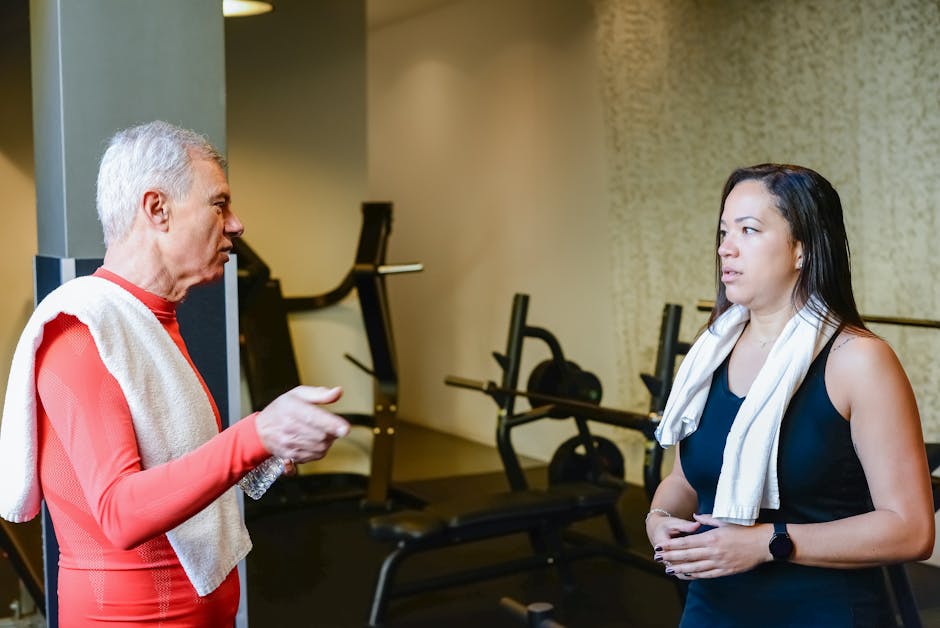A significant source of fitness guidance lies within the realm of personal trainers. Qualified personal trainers possess a deep understanding of anatomy, physiology, and exercise science. They meticulously assess individual needs, tailoring workout plans to address specific goals, limitations, and health conditions. Their expertise extends beyond the gym, often incorporating nutrition advice and lifestyle modifications to optimise outcomes. However, the price for personalized attention often comes with a financial commitment. Furthermore, the effectiveness of a trainer is intrinsically linked to the individual’s ability to engage with and trust the guidance offered. A disconnect in understanding or a lack of motivation from the trainee can impede progress.
Registered dietitians offer valuable input, especially when addressing nutrition as a crucial component of fitness. They possess the knowledge to create balanced dietary plans that support specific training regimens and health objectives. Their insight into macro and micronutrients, coupled with an understanding of potential dietary restrictions or allergies, is invaluable. While a dietitian’s input is frequently necessary for weight management and specific health conditions, they rarely provide hands-on exercise instruction. Consequently, combining their guidance with a personal trainer or other suitable fitness professional can yield remarkable results.
Exercise physiologists, another group of professionals deserving of attention, are deeply involved in designing and prescribing exercise programs for individuals with medical conditions. They often have in-depth knowledge of how exercise affects various physiological systems. This expertise is particularly relevant for individuals recovering from injuries, managing chronic conditions like diabetes, or those with specific physical limitations. They are adept at adjusting exercise intensity and modality based on the individual’s progress and tolerance, ensuring safe and effective routines. Importantly, exercise physiologists necessitate a medical referral in many instances, emphasizing the necessity of a doctor’s clearance before commencing any strenuous exercise programs.
Beyond certified professionals, online resources and social media influencers can also play a role in fitness journeys. The accessibility and vast reach of these platforms provide a wealth of information, workout routines, and motivational content. However, this readily available knowledge comes with caveats. The accuracy and validity of advice offered by unqualified individuals can be questionable, potentially leading to incorrect form, improper training loads, or even injuries. Consequently, while online resources can spark initial motivation and provide inspiration, seeking the guidance of a qualified expert is paramount for safe and effective exercise practices.
Family and friends can be a valuable source of support, albeit with limitations. Their encouragement and motivation can be crucial elements in maintaining a consistent fitness routine. However, their understanding of exercise science might be limited, and their knowledge may not be tailored to specific individual needs, which can lead to less than optimal outcomes. Encouraging feedback and support from loved ones can be helpful, but this support should be viewed as supplementary rather than the primary source of instruction. Seeking professional guidance, in conjunction with encouragement from family and friends, presents a more well-rounded strategy for attaining fitness goals.
Ultimately, the best advice comes from assessing your individual circumstances. Your health status, fitness goals, available resources, and personal preferences should be central to the decision of who to seek out. Consult a physician to determine if any pre-existing medical conditions necessitate a referral to a specialized professional. An evaluation of your personal motivations and dedication towards a consistent routine should also influence your choice. The interplay between different experts can generate a synergistic effect, allowing for a tailored approach that combines professional advice with your personal drive and commitment.
Consider the specific type of support you require. If the primary focus is on tailored exercise routines and personalized guidance, a personal trainer is an excellent choice. If your primary concern is balanced nutrition and dietary recommendations, a dietitian is an essential addition. For those with health conditions or physical limitations, a consultation with an exercise physiologist is critical. Remember, finding the right support system is not about blindly following one path but about meticulously selecting the appropriate advisors to craft a personalised fitness strategy that meets your unique needs and expectations.
Lastly, be mindful of the potential pitfalls of misinformation. Scrutinize the credentials and experience of those offering advice, especially online. Look for certifications, qualifications, and clear evidence of expertise. Verify the accuracy of claims and ensure the information aligns with established scientific principles. Ultimately, your health and well-being are paramount, so making informed decisions about fitness plans is crucial to achieving sustainable results. The path to a healthier lifestyle starts with a well-informed approach, one that acknowledges the diversity of fitness advice and selects the right guide for your individual journey.






